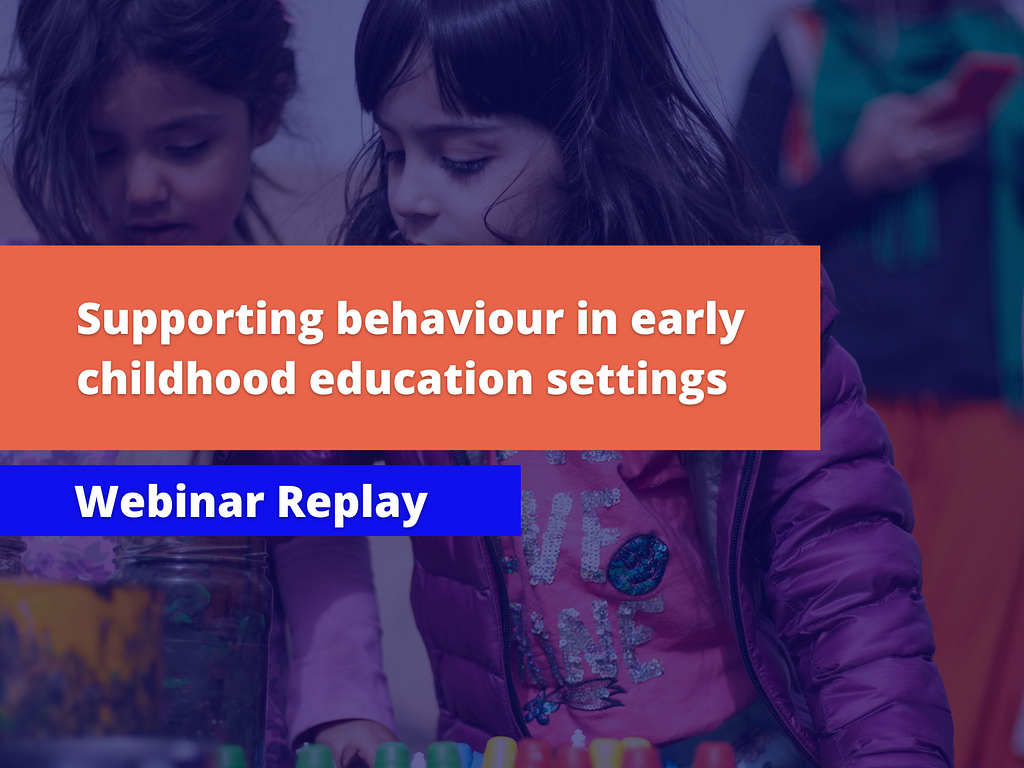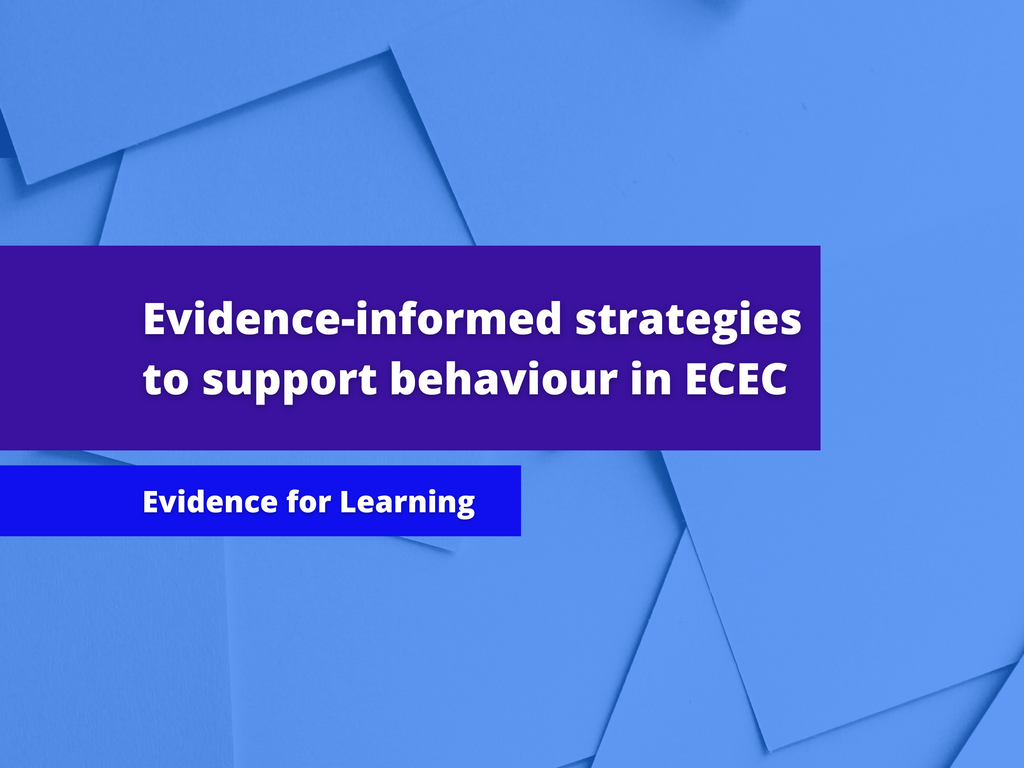Children’s experiences in the early years set the foundations for long-term behaviour and emotions. Early Childhood Education and Care (ECEC) settings are often a child’s first formal, group-based social experience outside their family and this context of peer, adult and group interactions presents a range of learning opportunities and challenges. Some children require additional support to navigate the behaviour expectations in these contexts. At times, some children may exhibit challenging behaviours.
Challenging behaviours can be broadly defined as those that reflect a misalignment between behaviours that are expected and observed. Australian early childhood educators identified challenging behaviours as a major impediment to workplace wellbeing and educational effectiveness, and a key practice area for which they seek support1.
This page provides an overview of current evidence on supporting behaviour in ECE. The resources on this page are focused on low-cost, evidence-based strategies educators can use in the room to respond to low-mid level challenging behaviours with children aged between two and five years. They should be used in conjunction with other resources to support children’s self-regulation, learning and wellbeing.
It draws on:
- relevant topics from the Evidence for Learning Early Childhood Education Toolkit,
- a systematic review of the research literature on strategies to support educators respond to challenging behaviours,
- other practical, evidence-based resources that we hope are useful for early childhood educators and educational leaders.
Self-regulation strategies
Social and emotional learning strategies
These tip sheets have been developed from a systematic review of the research literature on responding to challenging behaviour with children aged between two and five years in ECEC settings.
Tip sheet 1: Setting the scene
The Australian Early Years Learning Framework asserts that educators promote children’s identity, resilience, and agency when they “provide children with strategies to make informed choices about their actions, interactions and behaviours”. This tip sheet is about ‘setting the scene’ for supporting behaviour through creating positive relationships, providing stable foundations, empowering children with skills and knowledge, and communicating expectations.
Tip sheet 2: In the moment
Educators face a range of challenging situations in their everyday practices as they support children to learn and positively interact with others. Challenging behaviours are a common occurrence and evidence identifies a range of strategies that can help educators to respond in the moment. This tip sheet describes strategies to direct, re-direct, praise and reward positive behaviour, and resolve challenges or conflicts.
Tip sheet 3: Re-setting the scene
As children learn to navigate new social interactions in ECEC settings, challenging behaviours are a common and normal part of their experiences. Re-setting the scene involves revisiting and reflecting on challenging situations after they occur. These strategies have an important role in preparing for and supporting a child’s engagement and positive interactions in the future. This tip sheet describes strategies related to ‘re-setting the scene’ through revisiting and reflecting.
Insights summary: Supporting behaviour
This short paper provides an overview of the findings from the systematic review of the literature which underpins each of the tip sheets. It also explains how it links to the National Quality Standard.
Evidence for Learning would like to acknowledge the Queensland Brain Institute team at the University of Queensland, including Professor Karen Thorpe, Dr Sally Staton, Dr Sandy Houen, and Dr Laetitia Coles for their work on these resources. We also thank the other early childhood education researchers and educators who provided input and the Ian Potter Foundation for supporting this work.
Tip sheet 1: Setting the scene
Supporting behaviour through creating positive relationships, providing stable foundations, empowering children with skills and knowledge, and communicating expectations.Uploaded: • 161.5 KB - pdfTip sheet 2: In the moment
Strategies to direct, re-direct, praise and reward positive behaviour, and resolve challenges or conflicts.Uploaded: • 195.7 KB - pdfTip sheet 3: Re-setting the scene
Strategies to revisit and reflect on challenging situations after they occur.Uploaded: • 155.8 KB - pdfInsights summary: Supporting behaviour
Highlights the latest Australian and international research and how it relates to the National Quality StandardUploaded: • 226.7 KB - pdfReferences
1. Thorpe, K., Panthi, N., Houen, S., Horwood, M., & Staton, S. (2023). Support to stay and thrive: mapping challenges faced by Australia’s early years educators to the national workforce strategy 2022 – 2031. The Australian Educational Researcher, 1 – 25.

Webinars


Blog
